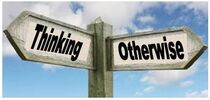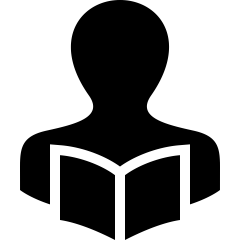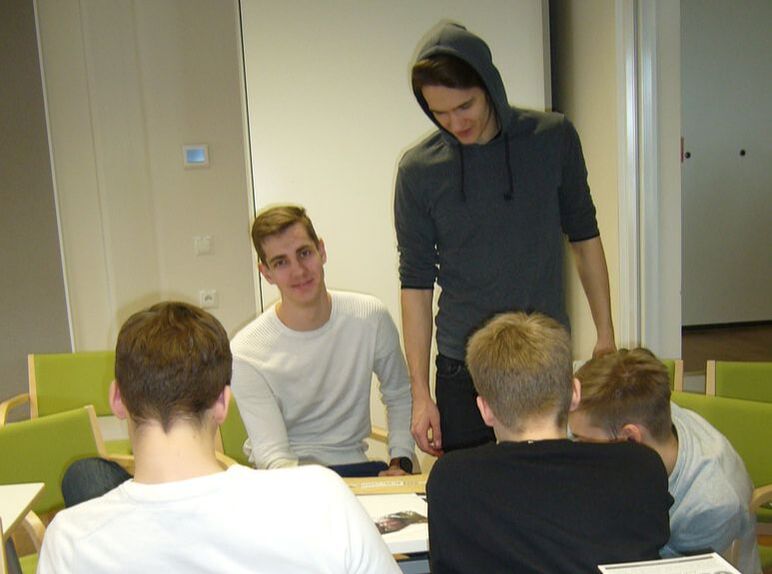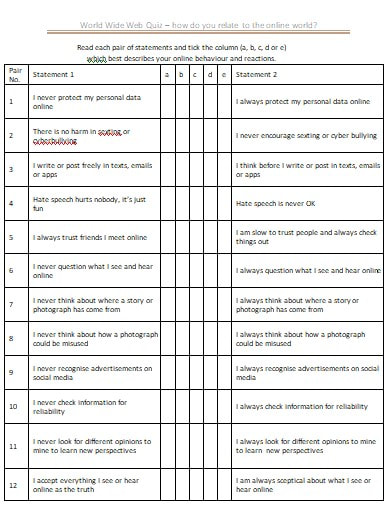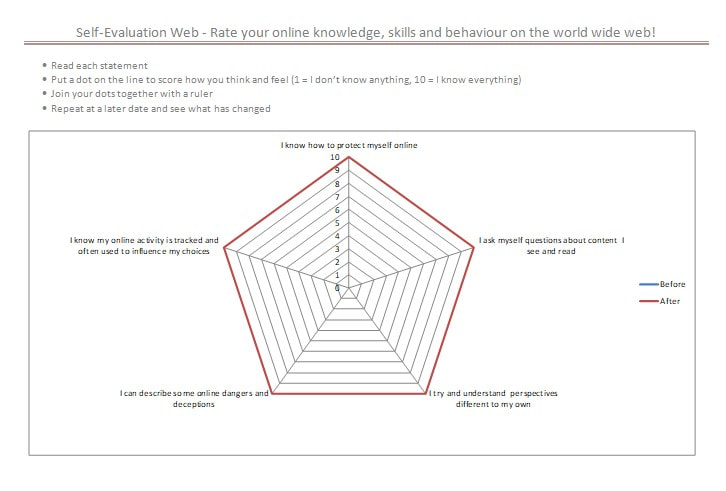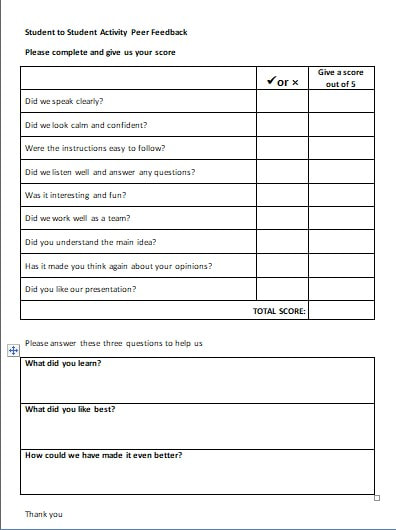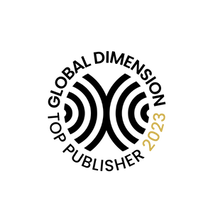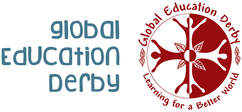Self-evaluation: Principles behind our approach
Self-evaluation, supporting young people to take responsibility for their own learning and reflect on their progress, is integral to all good learning. It is a useful process for them and also vital to support educators plan next steps on the learning journey.
From our shared experiences of learning, sharing, observing and reflecting together, over the duration of the project, we created the following documents to help teachers and students with self-evaluation.
World Wide Web Quiz - this is a snapshot of the areas of knowledge, skills and awareness developed through the project lesson plans and activities. Ideally this can be completed as a baseline activity, before a unit of work begins. Analysis will identify where gaps in knowledge and understanding might be - it will help you decide which activities are the best starting point for your group of young people.
Self-evaluation Web - An alternative baseline idea, with five areas to think about as a self-assessment. This opens up opportunity for discussion and dialogue. How objective can we be about our own knowledge? Will our perception of how much we think we "know" change as we learn more about these topics? We like the web design as it gives a visual representation of our thinking and progression. It is a useful stimulus for self reflection and discussion, especially when we return to it at the end of a unit of work and review learning.
Student to Student Activity Peer Feedback - Of course, peer educators are perfectly capable of designing their own evaluation form (online/offline) for their participants to complete. They can undoubtedly think of a snappier name too! This is provided as an example to spark their ideas. It is always useful to discuss how eliciting feedback from a wide audience - activity participants, teachers, class mates, parents, visitors can help provide different perspectives and support the whole reflection process.
Click on the images below to download the documents:
Self-evaluation, supporting young people to take responsibility for their own learning and reflect on their progress, is integral to all good learning. It is a useful process for them and also vital to support educators plan next steps on the learning journey.
From our shared experiences of learning, sharing, observing and reflecting together, over the duration of the project, we created the following documents to help teachers and students with self-evaluation.
World Wide Web Quiz - this is a snapshot of the areas of knowledge, skills and awareness developed through the project lesson plans and activities. Ideally this can be completed as a baseline activity, before a unit of work begins. Analysis will identify where gaps in knowledge and understanding might be - it will help you decide which activities are the best starting point for your group of young people.
Self-evaluation Web - An alternative baseline idea, with five areas to think about as a self-assessment. This opens up opportunity for discussion and dialogue. How objective can we be about our own knowledge? Will our perception of how much we think we "know" change as we learn more about these topics? We like the web design as it gives a visual representation of our thinking and progression. It is a useful stimulus for self reflection and discussion, especially when we return to it at the end of a unit of work and review learning.
Student to Student Activity Peer Feedback - Of course, peer educators are perfectly capable of designing their own evaluation form (online/offline) for their participants to complete. They can undoubtedly think of a snappier name too! This is provided as an example to spark their ideas. It is always useful to discuss how eliciting feedback from a wide audience - activity participants, teachers, class mates, parents, visitors can help provide different perspectives and support the whole reflection process.
Click on the images below to download the documents:
